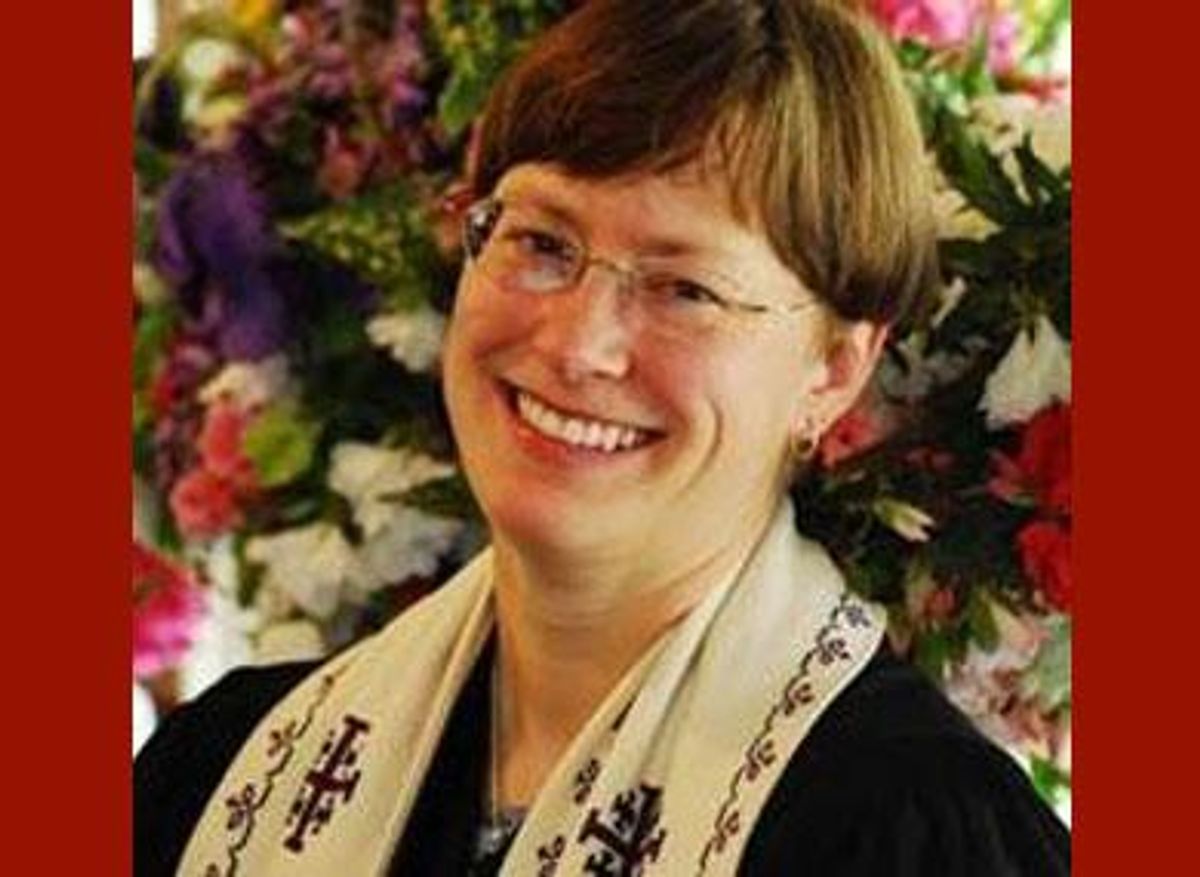When Katie Ricks became the first out lesbian ordained by
the Presbyterian Church (USA) Sunday, she was following tradition as well as
breaking new ground.
Ricks was brought up in the denomination, and her mother is
also a Presbyterian minister. Because the family moved around a great deal due
to her father's military career, "church became home base," Ricks says.
Ricks, 41, has long known she wanted to be a minister.
Clergy members often say they were "called" to the vocation, and Ricks means
this literally. "Sitting in church one Sunday, I heard God's voice telling me,
'This is where I want you to be,'" she says. That was several years ago, and
there was one problem: The Presbyterian Church did not ordain openly gay or
lesbian clergy.
Ricks, however, was undaunted. "I just trusted that God was
going to show me the way," she says. Some people thought her naive, she notes,
but her faith didn't waver. "I was having these amazing encounters with God,"
she says. "I remember saying to God, 'You got me into this, so show me the
way.'"
The way finally cleared in May of last year, when a majority
of the denomination's presbyteries, or regional governing bodies, approved an
amendment to church law allowing for the ordination of openly gay and lesbian
clergy, including those who are partnered. Ricks and her partner, retired
police officer Paula Gibbs, were joined in a holy union ceremony 11 years ago,
and they have a 5-year-old daughter, Jordan.
Scott Anderson of Wisconsin last fall became the first out
gay man to be ordained by the Presbyterian Church. Several lesbians have been
awaiting ordination, but Ricks was the one for whom the pieces fell into place
first; these included oral and written exams and a vote of her local
presbytery. Not that she hasn't been serving the church. She has been an
associate in ministry at the Church of Reconciliation in Chapel Hill, N.C.,
since 2002, when she graduated from Columbia Theological Seminary in Decatur,
Ga.
She will stay at the Church of Reconciliation after her
ordination and perform some of the same duties, such as working with the
children's and youth ministries. Being ordained, though, will mean she can
expand her role; for instance, she will be able to perform sacraments,
including baptisms and offering communion. "I love the sacraments," she says.
"They mean a ton to me."
Since 1993 the Church of Reconciliation has been a More
Light Presbyterian congregation, meaning it officially welcomes and affirms
LGBT people. It is located in a liberal college town -- Chapel Hill is home to
the main University of North Carolina campus. Still, Ricks has encountered some
Presbyterians who don't think gays and lesbians should be ministers. When
dealing with those people, Ricks has emphasized that the faith she has in
common with them is more important than any differences they have.
"The more that you're working with people, the more that we
can gather around the things that hold us together," she says. Also, she simply
tries to be her authentic self. That's what lesbian Presbyterian minister Jane
Spahr (who was not out at the time of her ordination, in the 1970s) called
"personing the issue," Ricks says.
"Our responsibility as leaders is to continually live our
faith the way we've been called to," she adds. "It's important for me to reach
out and important for me to accept the reaching out of people from other
sides." She has received much love from her fellow Presbyterians too, she says.
The time leading up to the ordination ceremony has been
exciting and emotional for Ricks. At the Maundy Thursday service (the night
before Good Friday) she was washing the feet of congregants, as Jesus did for
his disciples, and "I just broke down," she recalls.
"This is bigger than Katie Ricks," she adds. "It's even
bigger than the Presbyterian Church." But it's all part, she says, of the
church's "witness to the greater world."


















































































